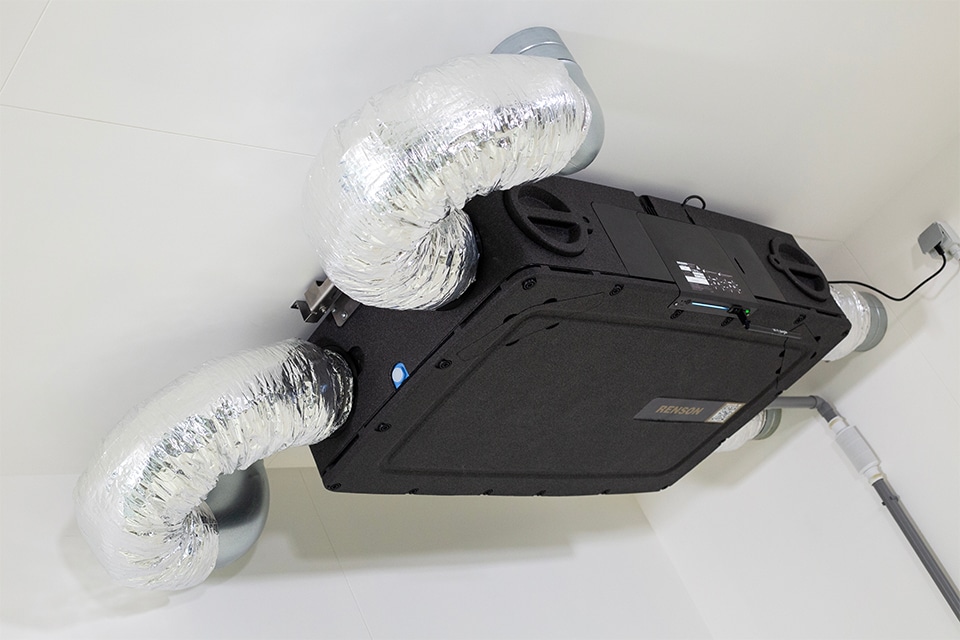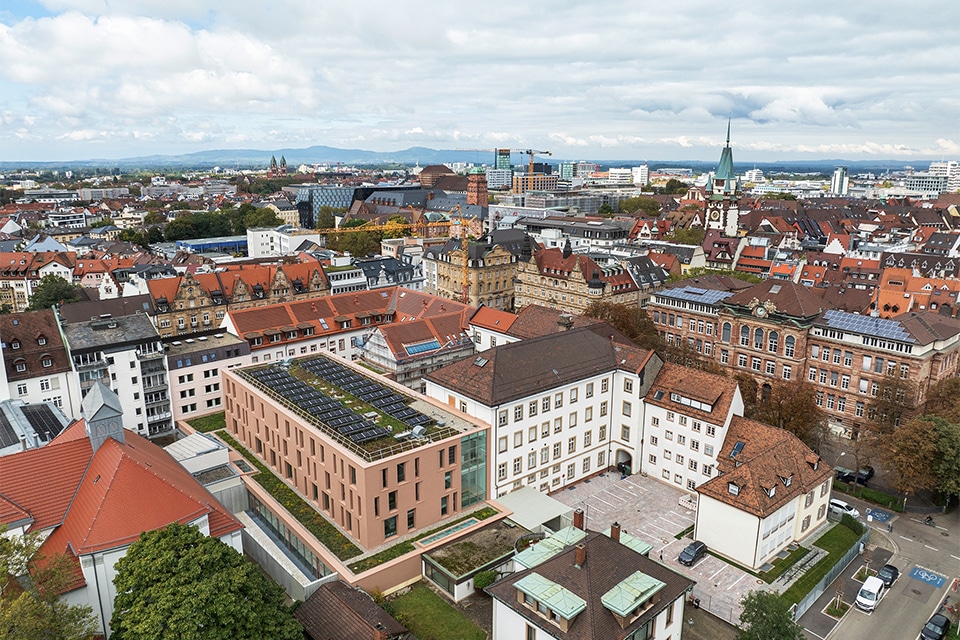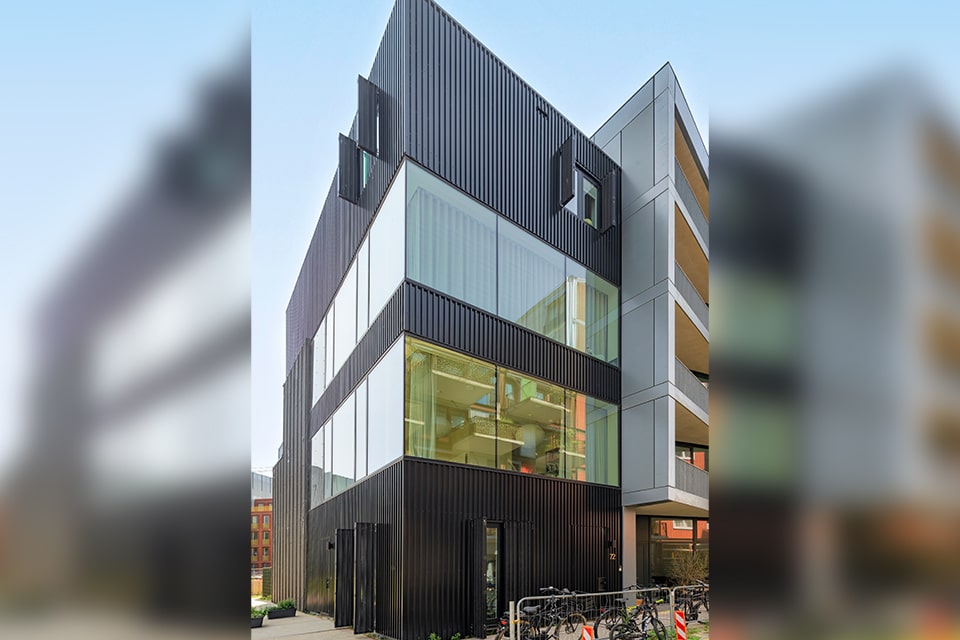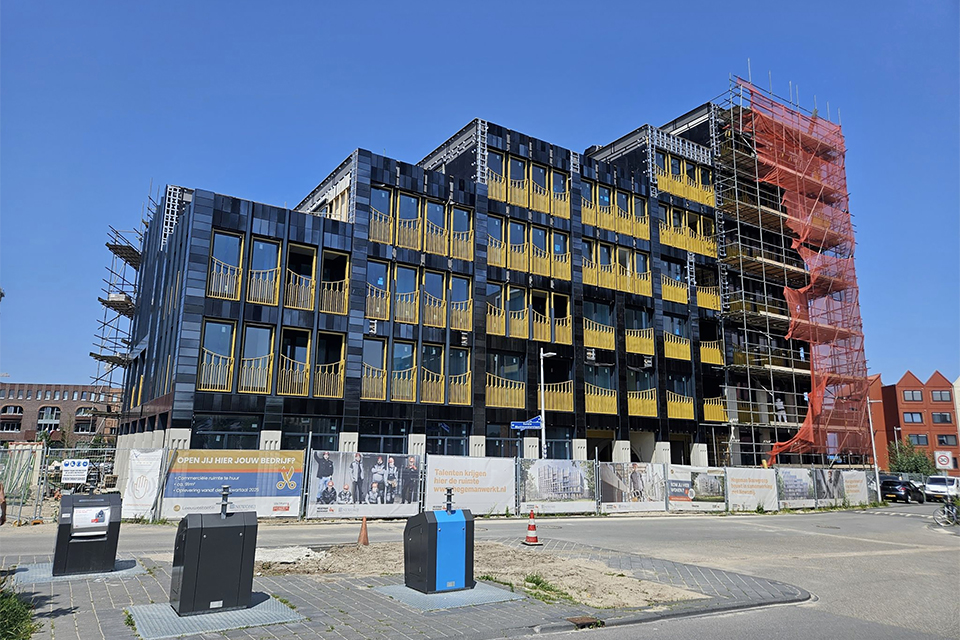
Not words, but deeds
Profile system supplier commits highly to sustainability and circularity
By dealing responsibly with materials, separating waste streams and returning raw materials back into the chain in equal measure, a cleaner world and a sustainable and better environment are created. System supplier Profine, the company behind the plastic window frame brand K-VISION, is aware of this and has been committed to industry-wide recycling and circular enterprise for years. These efforts have already led to numerous sustainable products and concepts, such as the circular K-VISION ReFrame frame and the proCoverTec color coating. But also to a nice entry in the National Environmental Database.

The National Environmental Database aims to provide clear insight into the environmental performance of buildings. The database is filled with product maps, with information on building products and building installations. From insulation materials to facade finishes and window frames. In addition to general information such as name, lifetime and functional unit, the environmental impact is also shared, obtained from a life cycle analysis (LCA). The total environmental impact from raw material to production and from demolition to recycling is summarized in an environmental cost indicator (EQI) and expressed in euros.
"Here, the lower the MKI, the lower the environmental impact and the higher the sustainability," says Jelmer Bijlsma, Manager of Sustainability & Innovation at profine Netherlands. "Based on this information, architects, consultants and other stakeholders can select building products with the least environmental impact. In addition, sustainable and circular construction is encouraged."

MKI of only €1.28
Last spring, K-VISION window frames were added to the National Environmental Database. "In the year before, we had an LCA drawn up and MKI calculated for our most commonly used window frame system: K-VISION Trend," says Bijlsma. "For this, not only we, but also our chain partners shared their information."
Following K-VISION Trend, the ReFrame frame profiles have also been added within the Trend series, making the difference between regular and circular frame profiles even more apparent. "Whereas K-VISION Trend has an MKI value (shadow cost) of €1.53, K-VISION Trend ReFrame scores a nice €1.28 for the fixed frame parts. This puts K-VISION Trend ReFrame at the top of the National Environmental Database. Because K-VISION Trend has a product-specific card and - even if you include internal reinforcements - consists of more than 50% of secondary content, the product is also eligible for various subsidies such as the environmental investment allowance (MIA) and the random depreciation of environmental investments (Vamil)."
Circular frame
Meanwhile, Profine's entire K-VISION product range is manufactured with recycled granulate to a greater or lesser extent. "The percentage depends, among other things, on the type of profile and the amount of recycled material available at any given time," Bijlsma emphasizes. "Those who choose K-VISION ReFrame are assured of 100% of recycled material and thus make a sustainable circular choice." This saves substantially on raw materials, transportation and associated emissions, while the circular frame profile has exactly the same technical properties as a "virgin" profile. "The only exception is the UV resistance. To guarantee this stability as well, the profile is coated all around with our innovative proCoverTec color coating that also results in a luxurious, matte look and feel."
That K-VISION ReFrame is conquering the market is evidenced by the many partners and parties in the Netherlands as well as the rest of Europe that have already chosen ReFrame since its introduction in 2020.

Nothing is thrown away
To collect enough content for its circular ambitions, Profine has clear customer agreements in place. "Among other things, saw waste and leftover pieces released from plastic window frame production are actively collected by us and processed into granulate, which we reuse as a raw material," Bijlsma says. The same applies to old window frames from demolition or renovation projects. At profine, nothing is thrown away or downgraded. Raw materials are reused at an equivalent level in our production, without sacrificing quality."
Innovations in BIM
In addition to sustainability and circularity, innovations within profine relate to digitalization. A good example of this is BIM. "In the market, BIM is increasingly being used as a design tool and digital specifications," Bijlsma notes. "As a result, there is a growing demand for product models, which can be easily integrated into the building information model. Also when it comes to window frames. To support this, we have had Autodesk/Revit create families of our most popular window frame models. A unique aspect of this is the flexibility. Dimensions, colors and even tessellations can be easily changed as required. In addition, profile series can be switched, allowing maximum design freedom."
Following BIM, numerous other product and process optimizations are in the pipeline. To be continued, then...




